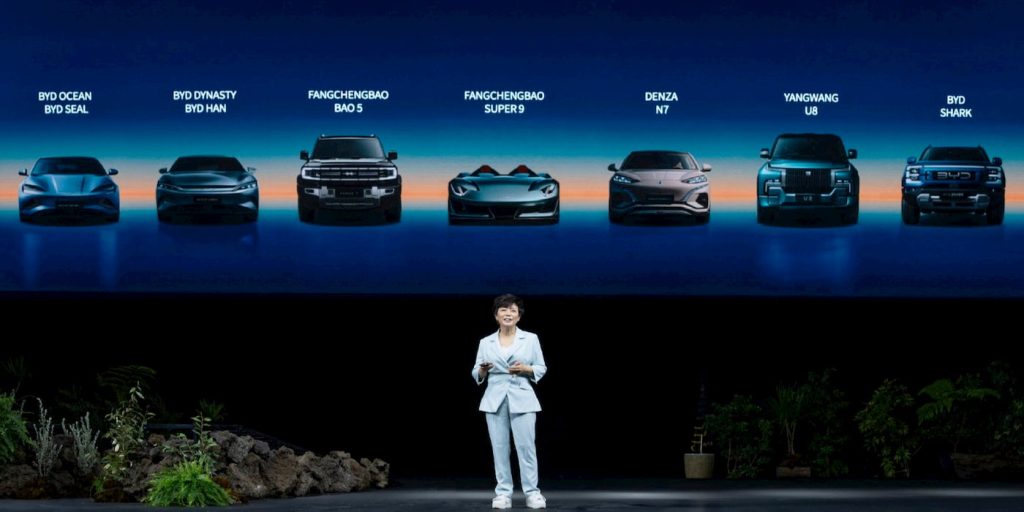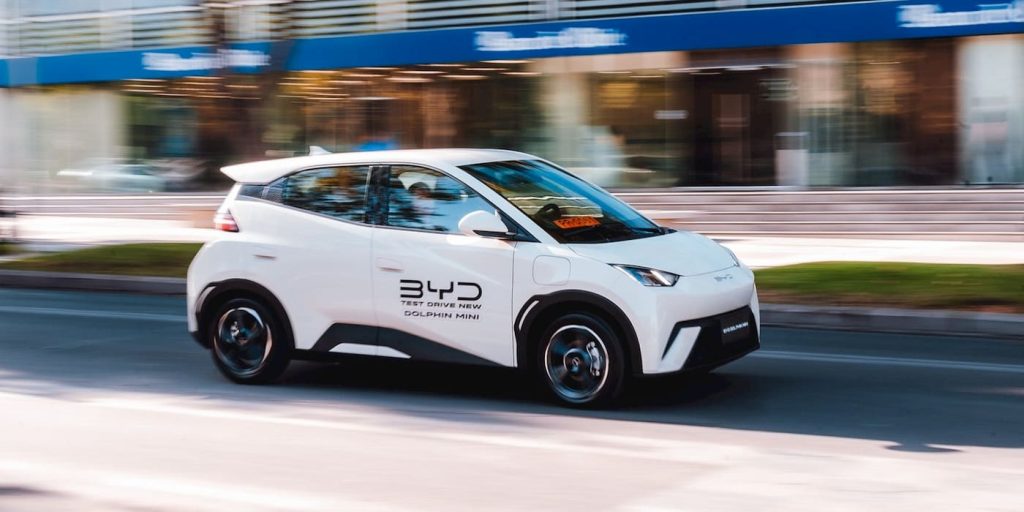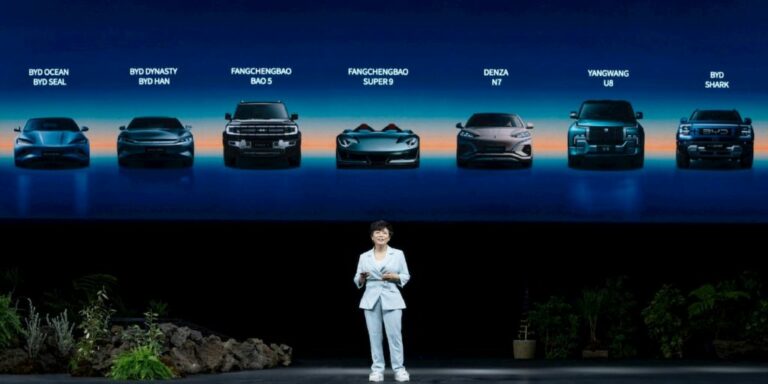China’s EV Leader Gains Traction in Europe
BYD, China’s leading electric vehicle (EV) manufacturer, is making significant inroads in the European market. In April, the company outsold Tesla in both Germany and the UK, marking a substantial milestone in its global expansion.
Surging Sales Numbers
BYD’s momentum is undeniable, with sales of new energy vehicles (NEVs) – including both electric vehicles (EVs) and plug-in hybrid vehicles (PHEVs) – reaching over 380,000 units last month. This represents a 21% year-over-year increase. Notably, BYD has focused exclusively on NEVs since discontinuing gas-powered car production in 2022.

Outperforming Tesla in Key Markets
In Germany, Europe’s largest automotive market, BYD sold 1,566 vehicles in April, representing an impressive 756% increase from the same period last year. In contrast, Tesla’s sales plummeted by 46% to just 855 cars during the same timeframe. Similarly, in the UK, BYD outsold Tesla with 2,511 vehicles compared to Tesla’s 512.
Expanding Global Presence
BYD’s overseas sales have been on a consistent growth trajectory, with over 79,000 vehicles sold internationally last month. This marks the company’s fifth consecutive month of growth in overseas markets. Through April, BYD has sold over 285,000 vehicles abroad, more than double the figure from the previous year.

Future Prospects
With several new models on the horizon, including the upcoming launch of its low-cost EV, the Seagull (to be marketed as Dolphin Surf in Europe), BYD is poised to further accelerate its sales growth. Forecasts from S&P Global Mobility predict that BYD’s European sales could double to 186,000 units in 2025 and potentially reach 400,000 by 2029.
To support its expanding global operations, BYD has launched its fourth car transport ship, the “BYD Shenzhen,” which is now the world’s largest vehicle carrier with a capacity for 9,200 vehicles.
As BYD continues to gain market share, Tesla faces increasing competition in the European EV market. Industry observers note that this development will likely drive innovation and benefit consumers in the long run.



